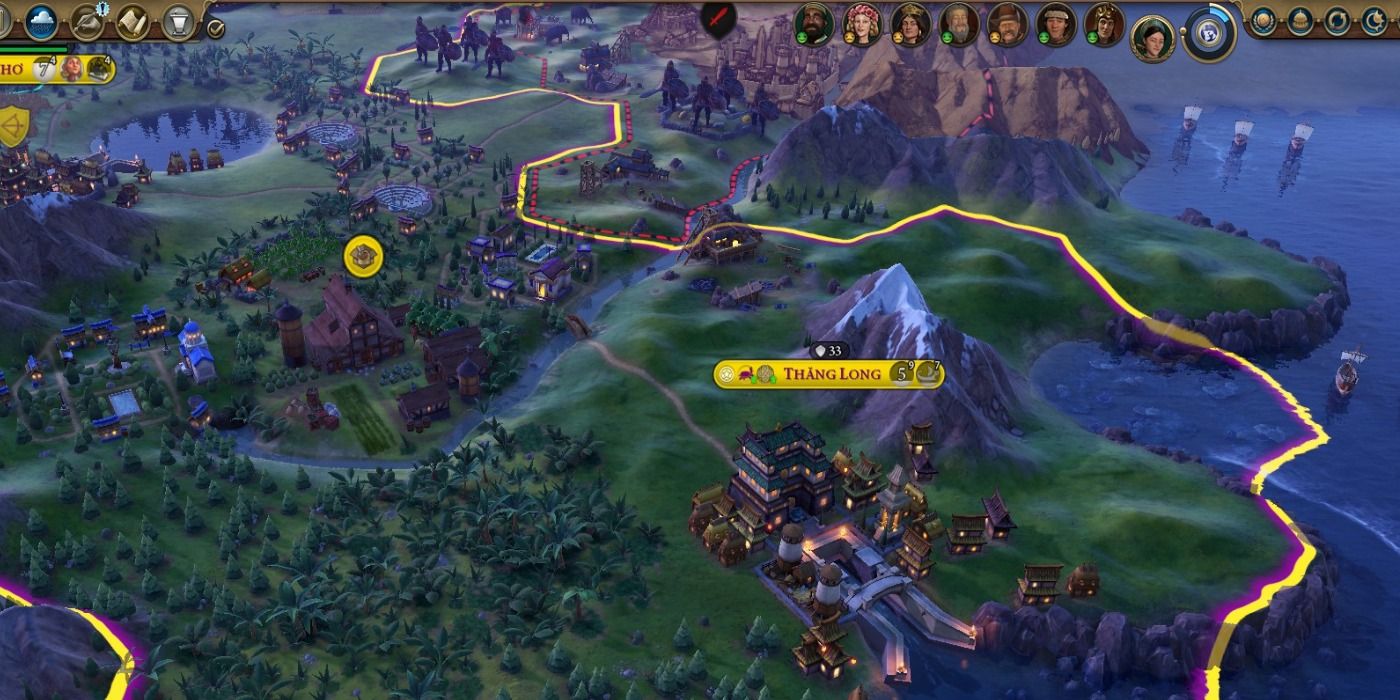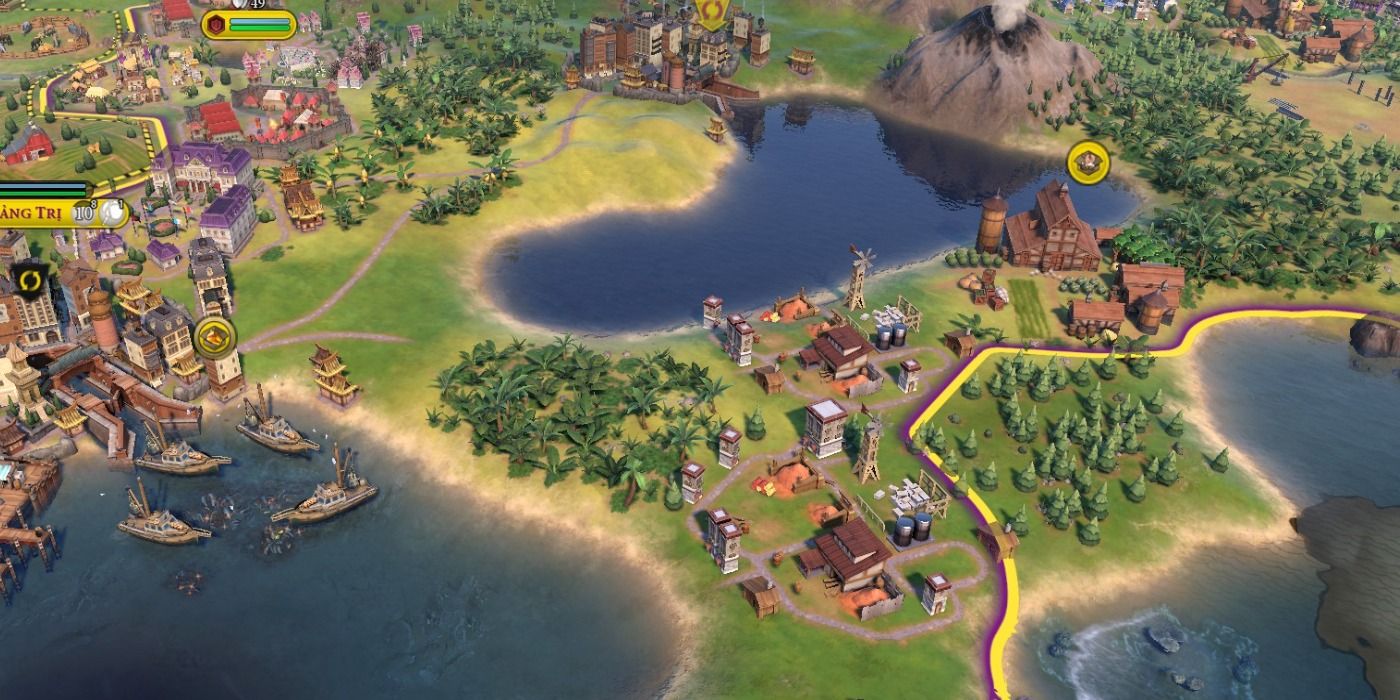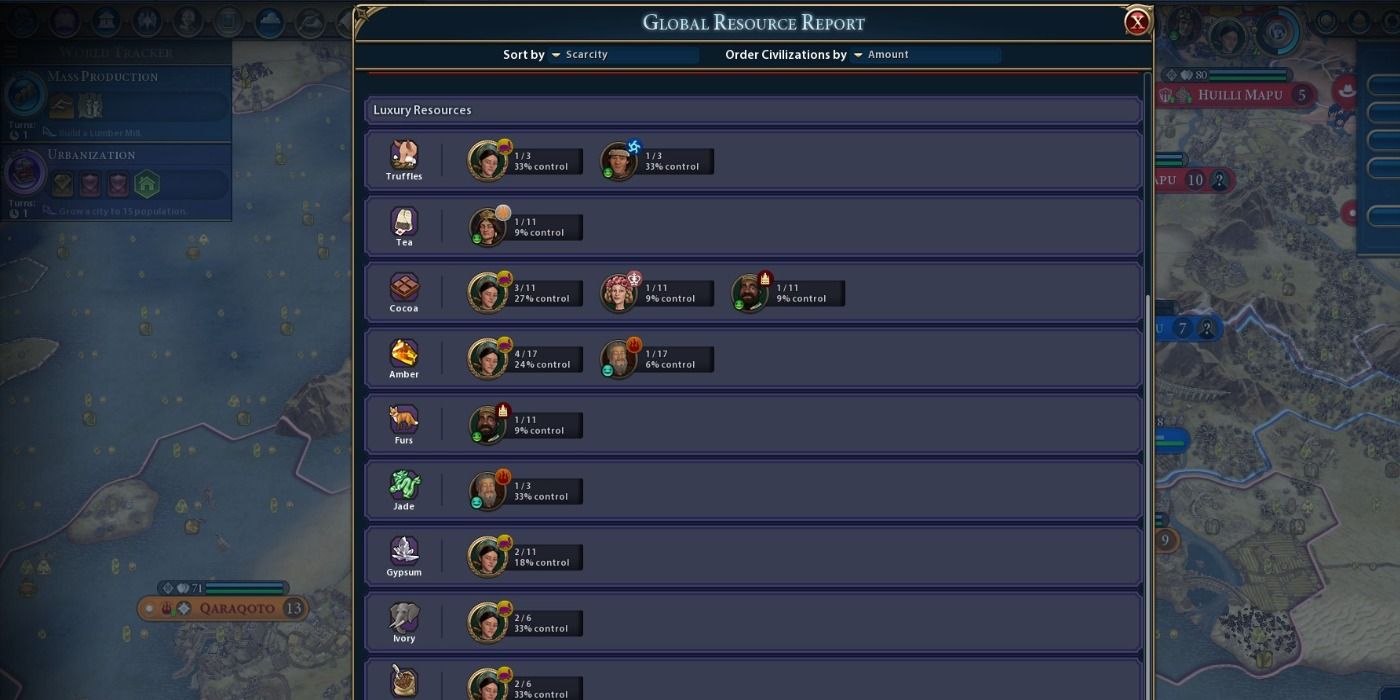The Civilization 6 New Frontier pass continues to deliver engaging new Civs to play as and game modes to spice up each game. In January 2021, Firaxis released the Vietnam and Kublai Kahn bundle, which includes the titular civ and alt leader, the new preserve district, and the monopolies and corporations game mode.
Corporations were first introduced in Civ 4, and fans of the series have been asking for the mechanic to make a return. The developers listened, and now players can create companies based around the different luxury resources in their lands. Luxury resources grant amenities to keep civilians happy, but now they operate with more strategic depth. Here's all there is to know about corporations and strategizes to best utilize them.
Creating an Industry in Civilization 6
First, players must acquire two of the same luxury resource. The tiles they’re located on do not need to be owned by the same city, but they do need to be improved by a builder. This means that players need to send a scout or two out as soon as possible to locate nearby luxuries, so once the starting settler has founded the capital, get to work training a scout right away. Keep an eye out for other civilizations and what luxury resources are close to them. Civilizations that can culture bomb, or absorb, tiles into their territory are great for snatching up luxuries. They include Poland, Australia, Khmer, Netherlands, the Maori, and Gaul. Also, those playing with the Heroes & Legends game mode will want to recruit Maui, who can potentially create new luxuries, if they meet him before another civ.
When choosing what luxuries to prioritize settling near, consider what benefits synergize best with one’s civilization and desired victory type. Different types of luxury resources grant different bonuses to their city when they’re made into an industry, which are listed below:
+30% production when training military units
- Ivory, Whales, Tobacco, Cotton, Citrus
+30% production when training civilian units
- Olives, Furs
+30% production towards buildings
- Marble, Gypsum
+20% growth and +3 housing
- Chocolate, Sugar, Salt, Honey
+25% gold
- Truffles, Jade, Silver, Gems
+25% faith
- Incense, Dyes, Pearls, Amber
+20% culture
- Wine, Coffee, Spices, Silk
+15% science
- Tea, Sea Turtles, Mercury
What industries are available can also influence what districts should be built in their respective city. For instance, building an encampment district in a city with a cotton industry will bolster that city’s military production considerably. It’s also worth noting that only one industry can be placed per city, so choose whatever luxury benefits the player’s victory style the most and swap tiles between cities if necessary. In addition, only one industry of a certain luxury can be built at once. To build an industry, players will need to research the currency technology, which can be quickened by sending a trade route, then using a builder to create the industry over the chosen luxury on the map. It also adds a little food and production to that tile, which is a neat bonus.
Creating a Corporation in Civilization 6
Another benefit of having industries is that they generate great merchant points to recruit great merchants, which are vital for upgrading an industry into a corporation. Building lots of commercial hubs and using the traveling merchant's policy card will help facilitate the process. Once one is recruited and the player has researched the economics technology, they can upgrade any industry into a corporation so long as they have three of that specific resources. To create the corporation, simply move the great merchant to an industry on the map and select the option to create the corporation. Not only will its tile have incredible yields, but it will double the effect of that luxury’s bonuses. Because corporations can only be made with great merchants, players don’t get many chances to create them, so they must choose wisely. Again, think about what city can benefit the most from the doubled yields.
Those that have a corporation can use them to create products. Go to a city that owns one and select the “create product” project. After several turns, that city will create a product that can be shipped out to other cities. Like how great works of art can be traded between different cities, so too can a corporation’s product. They can only be placed in stock markets and seaports, buildings for commercial hubs and harbors respectively. Civs that have unique variations of these districts, the Royal Navy Dockyard for England, Cothon for Phoenicia, and Suguba for Mali, can build them much more quickly and store products more easily. Products are incredibly powerful, as they grant the luxury’s bonus to whatever city it’s placed in. This can greatly benefit the player in certain instances, such as science-based Civs putting tea products in their cities to boost the output of their campuses. They can even be traded with other players, so keep an eye out on which civ’s have corporations.
Lastly, players that control a large portion of a certain resource will create a monopoly of it, granting bonuses to gold output and tourism. To check which Civs have what resource, click the 'list of reports' button in the top right corner, then choose the global resource option. Doing so will list every resource in the game and how many each civ owns. It will also share how much of that luxury is in the game world, which players can find manually by typing the luxury's name in the map search option. Try to find where every resource is, and settle there before other Civs claim it for themselves. If a city-state owns a luxury, then become its suzerain to
Civilization 6 is available for PC, Switch, PlayStation 4, Xbox One, and mobile devices.



